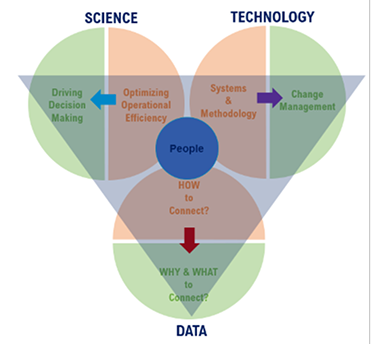Was my placement with Zifo worthwhile?
In the last few weeks of my 6-month placement within the EU Bioinformatics team at Zifo, I’ve been asked by friends, family, and colleagues whether it’s been a worthwhile experience. Each time my response has evolved, so what better way to process these thoughts than putting them down on paper.
Where I was before
After my undergraduate degree in Medical Sciences, I embarked on a PhD focusing on the impact of reproductive factors on breast cancer risk at the University of Bristol. While my research interests me and, in my opinion, delves further into an interesting area of breast cancer epidemiology, I have been in academia since leaving school. I felt a pull towards finding out what life would be like on the other side, in industry. Bioinformatics has been a field I’ve been drawn towards since learning to code while on a year in research during the 3rd year of my undergraduate degree. With this in my mind, when I returned to complete the 4th and final year of my degree, I took a module in bioinformatics. Despite not having the required prerequisites and convincing the module convenor I was proficient enough, I found I not only thoroughly enjoyed it but it was the module I performed best in, possibly in my entire degree. When I found out doing an industry placement during my PhD was an option, trying to find an placement in bioinformatics seemed like a great opportunity.
Coincidences and connections
Deciding to undertake a placement in industry, as it turned out, was much easier than finding one. After googling around and chasing connections, I was left disappointed, concluding that perhaps it wasn’t meant to be. However, my luck changed on a random evening when I went round to a friend’s house for dinner. I happened to mention my interest in undertaking a placement in bioinformatics whilst catching up, and by coincidence, she remembered her boss mentioning a friend from university working in the field. She put us in touch, we had a meeting, and 7 months later, it was my first day.
Expectations
In all honesty, I didn’t really have any expectations before starting this placement. As I mentioned I’d had some bioinformatics experience from the module I’d taken in my final year, and I’d been provided a job description by my Zifo manager, James. But I didn’t know what my day-to-day would look like or what skills I might learn. I was open-minded and ready to gain as much experience as I could.
Reality
I was responsible for a project that was essentially building a workflow using Snakemake, a workflow management system, to analyze data from shRNA-seq and CRISPR/cas9 genetic screens. This workflow involved data processing, quality control, differential expression analysis, gene level analysis, and gene enrichment analysis. I had no experience with Snakemake, and while it was a learning curve, I found it relatively easy to get to grips with. I then went onto build a Shiny app from scratch that visualizes the output of this workflow. Although I had used R a lot in my PhD and prior, building a Shiny app was completely new to me and I went through a fair amount of trial and error to get it to a point I was happy with.
Something I didn’t expect during this placement was designing logos for the Snakemake pipeline and Shiny app, both of which can be seen on the GitHub repositories (zifornd/shrnaseq, zifornd/shrnaseq-shiny). Although an intimidating challenge (I’m no graphic designer), I was pleased with the end result.
Finally, towards the end of the 6-months, I contributed to the nf-core rnasplice pipeline, a bioinformatics pipeline for RNA-seq alternative splicing analysis which uses Nextflow, another workflow management system. Initially I found Nextflow far more difficult to get my head around compared to Snakemake, there seemed to be so much more to learn. But once I had spent some time working on the pipeline, I started to make sense of it and understood why it’s popular.
Being relatively new to this field, one of the things I appreciated the most out of this experience was the time it allowed me to put into training in a number of areas; git, python, Snakemake, Shiny from R Studio, Nextflow, and single-cell analysis, are some that come to mind. On top of that, it felt great that I was able to use the newly acquired skills to contribute directly to projects.
The main reason behind my positive experience was working with great, supportive colleagues, who were always there to further my understanding and answer my silly questions. It’s also worth mentioning I’ve felt supported through the 6 months by the wider company and felt part of the Zifo team. Thanks all!
Final reflections
In answer to the question, was this placement worthwhile? Definitely. This was one of the best decisions I have made for my career to date. It’s given me an invaluable insight into the world of work outside academia, and exposure to what a career in bioinformatics could look like. In January I’ll be completing the final year of my PhD and while I’m undecided on what my career will look like afterwards, this experience will unquestionably inform my career choices going forward.

Claire Prince (Intern)



